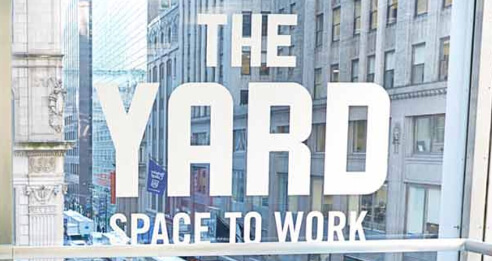
Largest Coworking Companies


The coworking industry is showing remarkable expansion as the world’s leading space providers are increasing their presence in different corners of the world. While WeWork offers over 600 spaces and is sustaining impressive growth in Southeast Asia, its main rival, Regus, is entering the UK franchise market. Regus prides itself on being a pioneer of flexible spaces solutions and the largest commercial space provider, with over 3,000 business centers in 120 countries.
Download the FREE guide to WeWork!

Regus is a Luxembourg-based company that's expanding to cities around the world. The company wants to have even a wider coverage using franchise as the brand’s growth strategy. Last year, Regus signed a deal with the UK-based ACCA Office Ltd., whose portfolio also includes franchises with Costa Coffee, Anytime Fitness and Pizza Hut, to meet the growing demand for flexible office spaces. In the near future, the company is looking to sign agreements with at least five other franchise partners in the months to come.
However, it seems that Regus franchising is not a novelty—rather, it's the comapny's next big push. Back in 2000, the company went along the franchising route but experienced only limited success. In the past, both Regus-owned and Regus-franchised properties existed in the same areas, which eventually led to competition between them. Eventually, Regus acquired the majority of its franchises and made the rest function under a different name.
This time, however, better planning could lead to cooperation between the company’s franchised branches and the owned ones. It's likely that the company is choosing a franchise model to expand its presence and increase its value while keeping costs down. This could also lead to higher returns to investors and a stronger competition with WeWork.

Unlike Regus, WeWork does not offer a franchise option, meaning each location is owned and operated by the company itself. The corporation leases commercial spaces, remodels them with design-forward offices and communal areas and offers them to coworkers for a monthly membership fee. The company is now the largest corporate office occupier in Central London and Manhattan and it's also considered to be the fastest growing coworking space provider in the world. Perhaps one day the company will offer a WeWork franchise, but for now, there’s no such need because they attract enough investments to expand throughout the world already.
WeWork has also introduced a new custom buildout feature for companies and startups that want their own, unique spaces, whether it's a suite, floor, or even an entire office. The WeWork team scouts real estate, develops the site, and even manages office operations once a team has moved in. It's almost like the opposite of Regus' franchise model—WeWork is adding their name to new spaces and buildouts, but still retains some form of control over operations.

In the meantime, there is cut-throat competition between Regus and WeWork as they compete for their own share of the global market. Last fall, Regus sued WeWork over the use of the term "HQ," which had been a registered trademark of Regus. WeWork claimed, meanwhile, that they should be allowed to use the term because it stands for "headquarters." Moreover, Regus blamed its competitor for poaching clients and making unfair deals with commercial brokers, who get up to a 100 percent commission for convincing coworking members to choose WeWork over other service providers. Tensions between the two coworking giants are, in other words, very high.
We’ll have to wait to see how the battle ends, but one thing is clear: both companies are strengthening their positions in different ways. For now, both WeWork and Regus are setting their sights on the future.
Save your community manager 41 hours each week—learn how The Yard did it with cloud-based access control.
Read the Case StudyThe Guide to Make Your Space More Profitable
Including interviews with experts and consultants.
Free access to our best guides, industry insights and more.
